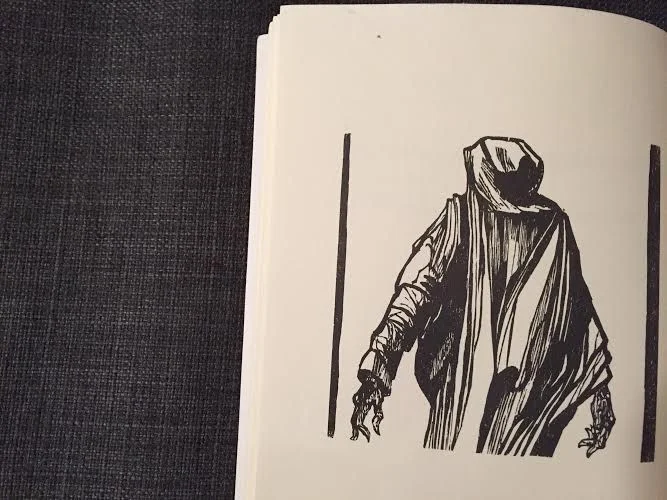Saturday Morning: 3 Poetry Books for a Weekend
The first time I read Heart of Darkness, I really don't think I understood a lick of it.It was for a literature course in high school that I read it, a dozen pages or so every night. When I took another plunge in college, I read it differently. From noon to midnight I read Conrad's short novella aloud to myself. A consistency of voice, narrative, and the richness of language in my mouth and ears, these being just a few of the pleasures that while now foundational to me as a reader and writer were totally foreign to me then. Taking an entire day to read a book I realize is a privilege, but the value it brought to my life is something I can't forget or help but share.
For the last few weekends I've chosen a different book to occupy myself with. Here are three of the books that I've found especially beautiful and intriguing. They're short and can all be easily read in a long afternoon. Better yet, they all happen to be books of verse.
Nine Acres, by Nathaniel Perry
A common fear among poets, especially young poets, is of the pastoral poet. I could see myself feeling this way about poems about, let's say, baseball if the only baseball poem I knew was "Casey at the Plate". No subject is too eccentric for poetry, but there does seem to be a lot of bad nature poetry. By this I mean, the people who write them or appear in them feel too much like silhouettes, existing only for the sake of the poem. The 52 poems in Nine Acres are dedicated to living. The speaker in the poems must earn one with his small farm, and be conflicted by living in the world too. He loves his wife, and argues with her too. Their neighbors fear going out of business. Their son must grow up in the world and learn the ways of the living. In the past few months I haven't read a collection of poems so tightly beautiful and rewarding as Nine Acres.
Lucifer at the Starlite, by Kim Addonizio
Some years ago, there was a cartoon in the New Yorker that featured two people walking down the sidewalk. The one guy said to the other guy, "I enjoy poetry, but only if it's funny." It's taken me some time to get over the contempt I felt for funny poetry. If it happened all at once and overnight, or like recovering from a head cold, progressively, I don't know. But I laughed my ass off when I read "Praise having a body to be unhappy in." Lucifer at the Starlite is wry and humorous, but the way Lucifer means "morning star," the book also suggests having cocktails with oneself.
Seven Against Thebes, by Aeschylus
translated by Anthony Hecht and Helen H. Bacon
The back story: before Oedipus or Jocasta were out of the picture, the couple had two boys, Eteokles and Polynieces. They also had two girls, Ismene and Antigone. The brothers were supposed to team up and rule over Thebes together by taking turns. Eteokles was to rule first but never gave up his post. Polynieces got a ragged band of seven warriors together and led a strike on Thebes, and if he managed to get through the city gates, he promised to terrorize and pillage. Eteokles, whose name means "truly bewept" and "the true source of weeping," wouldn't let this happen. The play, less than 50 pages long, pulls on the strings of a national tragedy and shows how far disorder will unravel out. In their introduction to the play, the translators Anthony Hecht and Helen H. Bacon write, "A nation can rarely redeem itself from its follies and errors, the cost of which in human misery is incalculable."
Gather up your worries and fear while reading this play, and locate inside yourself the reverence you worried and feared you lost.





